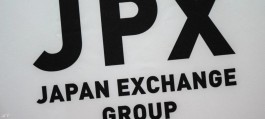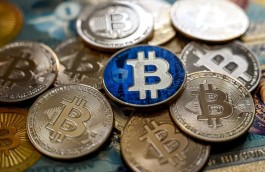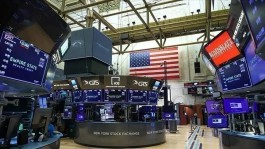The prices of most Asian stocks were unchanged, while currencies in the region rose amid cautious trading and low liquidity with some markets closed for the holidays.
Mainland China's benchmark indices fell at the open, Japanese stocks were trading flat, while other markets including Hong Kong, New Zealand and Australia were closed. The S&P 500 posted an eight-week winning streak on Friday - the longest in more than five years on signs of easing price pressures in the United States. US stock contracts and Treasury bonds also witnessed a slight change in Asian trading.
Emerging Asian currencies such as the South Korean won and the Malaysian ringgit rose as the dollar fell for the third session in a row.
Some on Wall Street are bracing for more stock gains ahead, with the so-called Santa Claus spike coming in — a seasonal trend where stocks tend to rise in the first few days of the new year.
“The soft landing narrative is all the rage, as the economy remains strong while inflation continues to trend downward,” wrote Louis Navellier of Navellier & Associates. The veteran investor in growth stocks expects the year to end at its highest levels, and added: The only ones who will have bad luck are the bearish bettors.
Red Sea tensions
Oil prices stabilized after posting their biggest weekly advance in more than two months, with shipping disruptions in the Red Sea in focus after a series of Houthi attacks on ships in the vital waterway. WTI crude oil traded near $74 a barrel, after rising 3% the previous week, the biggest rise since October.
However, geopolitical tensions remain on investors' minds into the new year, as tensions in the Middle East appear to be on the rise. Iranian President Ebrahim Raisi said that Israel will pay the price for the killing of a senior commander in the Iranian Revolutionary Guard in an air strike on Damascus yesterday, Monday. Over the weekend, the United States accused Iran of attacking an oil tanker in the Indian Ocean.
Japan's economy
In another context, Japan's labor market remained relatively tight in November, resulting in continued pressure on employers to increase wages in order to fill jobs. A separate report issued by the Ministry of Interior showed that the unemployment rate stabilized at 2.5% last month.
The benchmark Topix index traded within narrow ranges after Bank of Japan Governor Kazuo Ueda's speech on Monday, in which he indicated that he is in no rush to end ultra-accommodative monetary policy.
With the Nikkei 225 at elevated levels, selling (either take profits or stop losses) is likely to impact the upside, said Hideyuki Ishiguro, chief strategist at Nomura Asset Management.
In the corporate world, Chinese gaming stocks rose after a number of companies announced plans to buy back their own shares in the wake of the rout caused by news of recent government restrictions on the industry.
Flexibility of growth in America
Global markets have rebounded in recent months, with traders betting that major central banks including the Federal Reserve will cut interest rates aggressively next year as inflation declines. Bond yields fell as the S&P 500 index approached a new record high.
Data released last week showed signs of resilient US growth, while the Fed's favored core inflation index barely rose in November. Additional reports on Friday showed that consumers are also becoming convinced that inflation in the world's largest economy is on track despite a difficult recovery in the housing market.
That helped boost investor expectations for earlier and deeper interest rate cuts next year, despite opposition from many Fed policymakers. Swap traders are betting that interest rates will ease by more than 150 basis points in 2024, double the Fed's forecast.





































